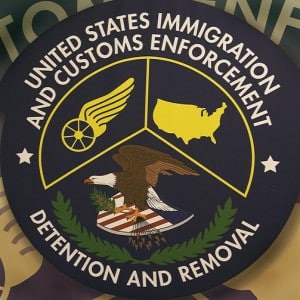 Human Rights Watch released a first-of-its-kind report showing that tens of thousands of people are deported from the United States each year for minor drug law violations. The report, A Price Too High: U.S. Families Torn Apart by Deportations for Drug Offenses, documents how deportations of non-citizens for minor drug possession offenses have spiked in recent years, increasing by 43% from 2007 to 2012. In total, more than a quarter of a million people (roughly 266,000) have been deported for drug offenses since 2007, most commonly for minor drug possession offenses.
Human Rights Watch released a first-of-its-kind report showing that tens of thousands of people are deported from the United States each year for minor drug law violations. The report, A Price Too High: U.S. Families Torn Apart by Deportations for Drug Offenses, documents how deportations of non-citizens for minor drug possession offenses have spiked in recent years, increasing by 43% from 2007 to 2012. In total, more than a quarter of a million people (roughly 266,000) have been deported for drug offenses since 2007, most commonly for minor drug possession offenses.
Under current immigration laws that focus on targeting “threats to public safety and national security,” decades-old offenses and/or pardoned drug convictions can lead to mandatory detention and deportation. However, Human Rights Watch found that most non-citizens deported for criminal convictions had only committed minor, nonviolent offenses.
The damning new report provides another example of how the war on drugs has become a war against migrant communities, fueling racism, violence, and the militarization of the U.S.-Mexico border. Roughly 40,000 people (or more) have been deported every year since 2008 due to drug law violations. Latino communities more broadly have been disproportionately impacted by U.S. drug law enforcement; for example, Latinos comprise 17 percent of the U.S. population but almost half of all cases in federal courts for drug offenses.
In 2013, nearly 20,000 people were deported for simple possession of any drug or drug paraphernalia – and simple marijuana possession was the fourth most common cause of deportation and the most common cause of deportation for crimes involving drugs. By contrast, relatively few of those deported were drug traffickers. Meanwhile, current drug laws are tearing thousands of families apart every year by barring reentry for those who are deported and cutting their ties to their communities.
“Ending the failed war on drugs is a Latino issue,” said Jerónimo Saldaña, Legislative and Organizing Coordinator at the Drug Policy Alliance. “No family should have to face the injustice of separation. No one should be arrested, incarcerated or deported just for using or possessing drugs. We need to continue to fight for reforms so that no family is criminalized and torn apart.”
The report concludes with a series of recommendations for the federal government, as well as for cities and states, to eliminate deportations for minor drug offenses – including the decriminalization of drug use and possession and other vital sentencing reforms.
California legislators and advocates are proactively trying to diminish the impact of harsh immigration laws with two bills currently under consideration in the California State Legislature. Assembly Bills 1351 and 1352, authored by Majority Caucus Leader Susan Eggman, would permit immigrant residents to take part in drug treatment programs as a way to clear their records, and would provide pre-plea diversion for minor drug offenses – since a guilty plea is often what triggers federal immigration consequences, including deportation.
“California is leading this country in proposing smart, humane drug policy reform, with two historic sentencing reform bills that will allow people with minor drug charges to successfully complete a treatment program before pleading guilty – thus avoiding the disproportionate federal punishments that can mean deportation for immigrants,” said Armando Gudiño, California Policy Manager at the Drug Policy Alliance.
Source: Drug Policy Alliance – make a donation








